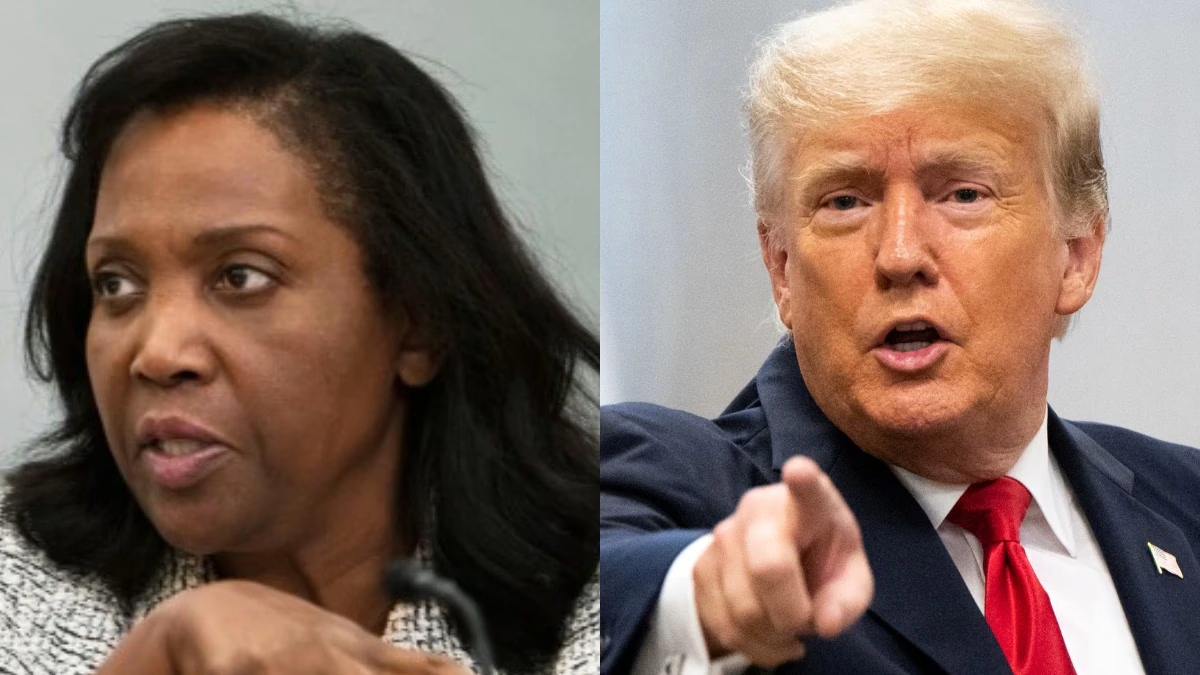By Don Terry | Tuesday, September 16, 2025 | 8 min read
It’s been three weeks since Donald Trump announced, with the sort of certainty he reserves for the biggest fights he picks, that he had removed Federal Reserve governor Lisa Cook from her post. He made the declaration with a flourish — an action that, on its face, runs up against the long-standing legal protections designed to keep the central bank insulated from partisan pressure.
The ostensible reason? Allegations about the way she reported residences on mortgage paperwork, a complaint flagged by one of Mr. Trump’s own appointees and pressed by the White House as justification for his move. Cook has not been criminally charged, and in the intervening days reporting has surfaced that undercuts the core of the accusation.
There is no mystery about what is driving this: the administration wants a more pliant Federal Reserve. If a sitting governor who resists the president’s demands — for deep and rapid interest-rate cuts, for example — can be removed on procedural grounds, that opens the door to putting a loyalist in place who will, in effect, take policy directions from the Oval Office. That kind of capture is precisely what independent central banks were created to prevent. The removal gambit is not, therefore, really about mortgage forms; it is about control.
At the heart of this clash is Bill Pulte, the head of the Federal Housing Finance Agency and a loyal Trump confidant. It was Pulte who kicked things off by sending a criminal referral to the Justice Department, accusing Lisa Cook of misrepresenting her primary residence on mortgage paperwork. That single move handed the White House exactly the pretext it needed. Almost immediately, the machine roared to life: condemnations rolled out across social media, press briefings, and official statements, all hammering home the claim that Cook was guilty of fraud rather than making a minor paperwork mistake.
The playbook feels familiar. It echoes Trump’s earlier tactic during the Ukraine affair, when the demand wasn’t to actually uncover wrongdoing but simply to have someone declare that an investigation was underway. “Just say Biden is being investigated for a crime,” Trump had insisted, leaving the rest to his political operation. In Cook’s case, the script is strikingly similar — raise the accusation, brand it as criminal, and trust that repetition and outrage will fill in the gaps where evidence is thin.
But as journalists have dug through loan estimates and disclosure forms, a different picture has emerged: the paperwork appears to show Cook treated her Atlanta property as a vacation house on the loan estimate in question, a detail that tends to undercut the notion of deliberate fraud.
The legal fight that followed has been swift and consequential. A federal judge issued an order finding that a Fed governor can be removed only “for cause,” and that the administration had not met that bar; the judge concluded Cook was entitled to due process. The White House, for its part, appealed and argued that the president’s authority in this domain was essentially unreviewable.
The case landed at the D.C. Circuit, where an appeals panel recently declined to allow the removal to go forward — a decision that keeps Cook on the job as the Fed prepares for a critical policy meeting. That ruling is a significant, if temporary, rebuke to the effort to purge a regulator whose independence the administration sees as an obstacle.
All of this is unfolding against a backdrop of real economic strain that gives the dispute extra urgency. Indicators like rising long-term unemployment and a harder-to-read labor market have made the Fed’s decisions more politically fraught. The White House has argued loudly that only forceful rate cuts will lift the economy; critics counter that politicizing the central bank would be dangerous for markets and for ordinary people trying to pay rent and keep jobs.
Those who worry about ordinary Americans point out that when policy becomes a tool of partisan advantage, the people who suffer first are those already on the margins — small farmers facing tighter credit, renters squeezed by rising costs, workers whose savings and job prospects depend on steady monetary policy.
There’s a performative element to the whole thing that deserves attention. The administration’s campaign to remove Cook played like an attempt to seize a headline and, by extension, seize control of a story about the economy. Think about it: if the president can manufacture scandal around a governor and create enough noise to justify removal, that sets a precedent far broader than any single personnel change.
It signals to anyone who takes the Fed’s independence seriously that no office is safe from political retribution. That’s not abstract. Markets value predictability; businesses and families plan on institutions doing their jobs without constant political interference. When that predictability is threatened, confidence erodes. The potential cost is diffuse but real.
Equally striking is how thin the evidence looks after closer scrutiny. Reporting from respected outlets shows the specific mortgage paperwork being cited does not, on its face, demonstrate the kind of deliberate deception that would typically trigger a criminal charge. Indeed, other officials within the administration have engaged in similar practices, according to media accounts — which raises the question of whether Cook is being singled out because of policy disagreements rather than an actual pattern of fraud. If a norm is applied selectively, it’s not a norm at all; it’s a weapon.
Observers on both sides of the political aisle have noted how this episode reveals both ambition and fragility. For a leader who cultivates the image of a decisive strongman, the public fumbling of legal and factual groundwork here reads as weakness. A would-be autocrat who cannot align his own appointees’ paperwork with a believable, provable line of attack against a regulator looks less like a strategic operator and more like someone improvising in search of leverage.
That has consequences: international peers, markets, and domestic institutions all watch how the U.S. handles its central bank. The credibility cost of a president appearing to meddle in independent governance is not contained within Beltway chatter; it ripples outward to investors, allies, and everyday Americans wondering whether policy choices are being made for the national interest or for narrow political gain.
Still, this isn’t a story that ends with a temporary court order. The administration has signaled it will push the legal fight all the way up, asking for stays and expedited rulings so that its preferred personnel changes can affect the upcoming Fed meeting. Meanwhile, the Senate has confirmed at least one more Trump ally to the board, moves that, combined with a successful removal, could reshape the board’s balance and tilt policy in a direction more aligned with the White House’s wishes. The stakes are therefore not merely about one governor’s career; they are about the broader architecture of economic governance in the United States.
At a human level, it is easy to lose sight of those who will feel the consequences of this power struggle. When institutions are weakened, people pay the price in subtle, cumulative ways: higher borrowing costs for a farmer who can’t refinance, a small-business owner who delays hiring, a family that loses trust in the idea that public servants will be treated fairly. The rhetoric of control and the theater of dismissal might thrill some political constituencies, but the long-term harm, should norms erode, will be borne by families and communities, not by ideological spectators.
The Cook affair, then, is a small story with outsized implications. It lays bare the administration’s appetite for influence over independent institutions and shows how political incentives can warp the use of government power. It also exposes a failing in execution: a high-stakes gambit built on shaky factual grounds, moved forward with intensity but not the careful, indisputable evidence that would make the action defensible in court or convincing to a skeptical public. For an administration that wants to be taken seriously when it talks about strengthening the economy, the best route would be to make a clearer case in the open rather than trying to manufacture conformity through personnel fights.
What happens next will matter. If the courts continue to push back, it could reaffirm a basic principle: some parts of government must remain insulated from the short-term pressures of politics. If, on the other hand, the White House ultimately prevails in reshaping the Fed’s leadership through rapid personnel changes, the result will be a different kind of economy — one where policy decisions risk reflecting partisan priorities as much as economic judgment. For the public, that’s not a theoretical risk. It’s a choice about how the country will govern itself in moments of crisis and plenty.
The Disturbing Truth: Charlie Kirk’s Killer ‘Not Cooperating’ Exposes GOP Malicious Spin’
MSNBC’s Firing of Matthew Dowd Was a Cowardly Mistake and Misguided
Charlie Kirk’s Death and the Shadow of Political Violence in Trump’s America
Is Netanyahu Bombing Qatar to Deflect From Trump’s Epstein Birthday Card Controversy?
Bill Maher Is Jewish — But Keeps It Quiet to Support Israel and It’s Wars
Copyright 2025 FN, NewsRoom.






